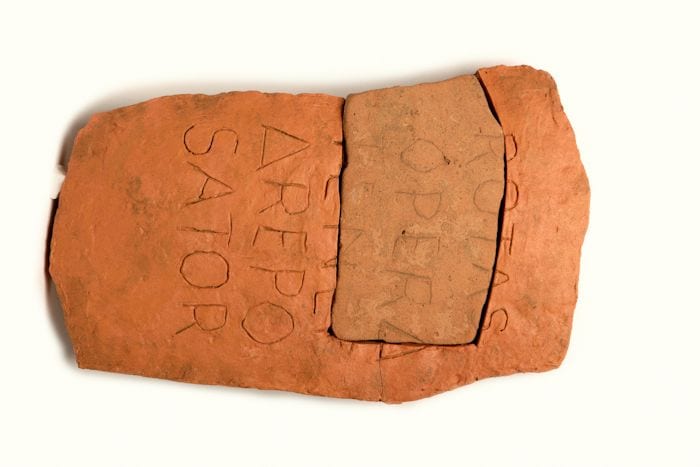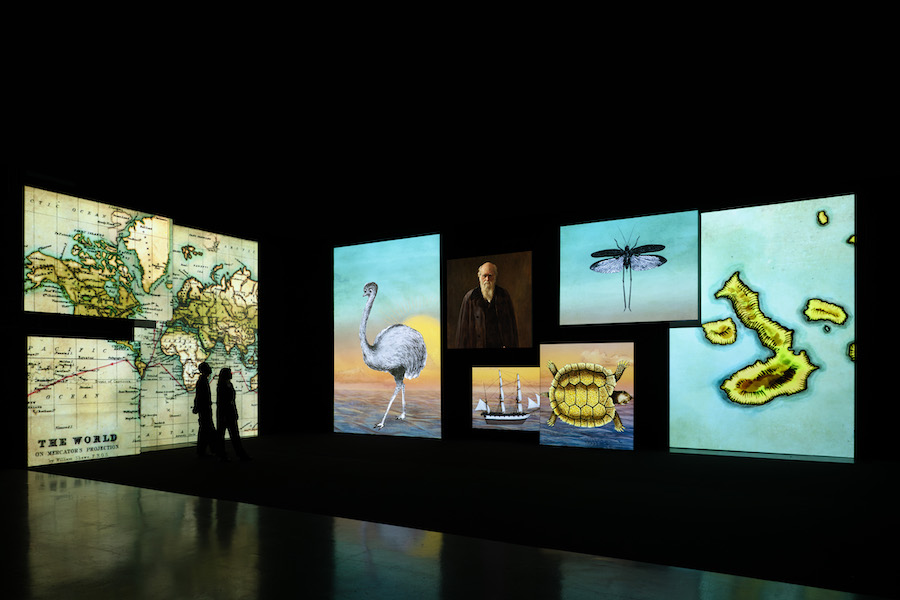The irony of a Roman relic accidentally discovered in Manchester
- Written by Ed Glinert
- Last updated 1 year ago
- Cornerstone, Culture, History

How surprising that in Manchester, the most modern of cities and the world’s first industrial city, one of the oldest Christian relics ever discovered in Britain should be found. And to complete the irony, it was in the shadow of one of its most prominent modern structures – the Beetham Tower.
In 1978, on a dig on Trafford Street by the side of where the Beetham now stands, archaeologists unearthed a piece of broken pottery dating back to the year 182 AD, apparently inscribed with Latin letters.
What made this relic different was that the script read ROTAS OPERA. Experts knew that this was part of a word square, found across the Roman Empire, which Christians, who then had to worship in secret, would use to communicate with each other secretly. The complete word square would have read: ROTAS OPERA TENET AREPO SATOR which reads the same backwards, forwards, and upside down.
The translation is prosaic – Arepo the sower guides the wheels with care. However, re-arranged it reads PATERNOSTER – ‘our father’ – with the letters A and O signifying the Latin letters alpha (‘the first’) and omega (‘the last’).
Clearly, there were Christians in late 2nd century Manchester at a time when Rome was still worshipping the god Mithras. But it would not be until the year 312 that Rome would adopt the new religion.
To find out more about the history of the city through its sites, signs, symbols, statues, settings, join tour guide and author Ed Glinert on one of his New Manchester Walks. More information on the website.
- This article was last updated 1 year ago.
- It was first published on 3 February 2019 and is subject to be updated from time to time. Please refresh or return to see the latest version.
Did we miss something? Let us know: press@ilovemanchester.com
Want to be the first to receive all the latest news stories, what’s on and events from the heart of Manchester? Sign up here.
Manchester is a successful city, but many people suffer. I Love Manchester helps raise awareness and funds to help improve the lives and prospects of people across Greater Manchester – and we can’t do it without your help. So please support us with what you can so we can continue to spread the love. Thank you in advance!
An email you’ll love. Subscribe to our newsletter to get the latest news stories delivered direct to your inbox.
Got a story worth sharing?
What’s the story? We are all ears when it comes to positive news and inspiring stories. You can send story ideas to press@ilovemanchester.com
While we can’t guarantee to publish everything, we will always consider any enquiry or idea that promotes:
- Independent new openings
- Human interest
- Not-for-profit organisations
- Community Interest Companies (CiCs) and projects
- Charities and charitable initiatives
- Affordability and offers saving people over 20%
For anything else, don’t hesitate to get in touch with us about advertorials (from £350+VAT) and advertising opportunities: advertise@ilovemanchester.com


The Manc aerobics queen who trained the Corrie cast is helping raise charity cash

Ancoats to get even cooler as independent market set for MOT garage site

“Manchester is not Britain’s second city, it’s the first” – Jeremy Clarkson
















